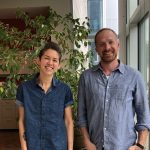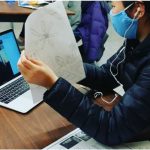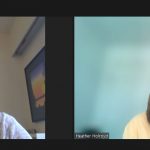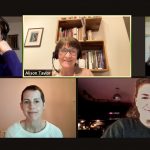By Mallory Davies
A paradigm shift, by which I mean, a fundamental change in one’s underlying assumptions[1], is a key feature of the CAP course, Law and Society led by Evan Mauro and project manager, Kristi Carey.
It’s through discomfort as students move out of comfortable physical and mental spaces and dialogue about that discomfort, that they began to take on new perspectives and to see themselves through the eyes of other worlds. This is especially important for new students who will spend at least four years in the university “bubble.”
In the case of Vancouver’s downtown eastside, this involves students recognizing their privilege and how to be good allies. As the course unfolded, students, most of whom had already engaged in some sort of volunteer work with underserved communities, began thinking critically about the charity framework that underpins much of this work.
A key part of students’ paradigm shift was the emphasis on reciprocity in community-engaged learning. Community engagement, as the CAP team states, involves listening, bearing witness, and holding space for the people who you engage with. Reciprocity involves understanding what the community partner needs, but also acknowledging the important work already done by the partner. For first year students who are dipping a toe in, reciprocity is more likely to involve students sharing their community learning experiences with their broader social networks rather than constructing themselves as experts in the community.
Although the class involved uncomfortable learning at times, discussions were also respectful and rigorous in ways not always evident in a lecture format. “This was an engaged and humanistic-ally inclined group,” where both the bonds among students and their passion were more noticeable to Mauro than in the traditional classroom. Paradigm shift are about shifts in student expectations about teaching and learning and about expertise, as much as perceptions of community.
When asked whether the students want to continue to learn in and with community, Mauro and Carey mention that they hope so, and they’ve supplied students with a list of more CEL courses to check out at UBC. What is significant is that although this is a slow entry course into a more intensive community engagement, the students appear poised to seek out learning that unsettles them in a supported way.
[1] Collins Dictionary. 2019. paradigm shift. https://www.collinsdictionary.com/dictionary/english/paradigm-shift.







